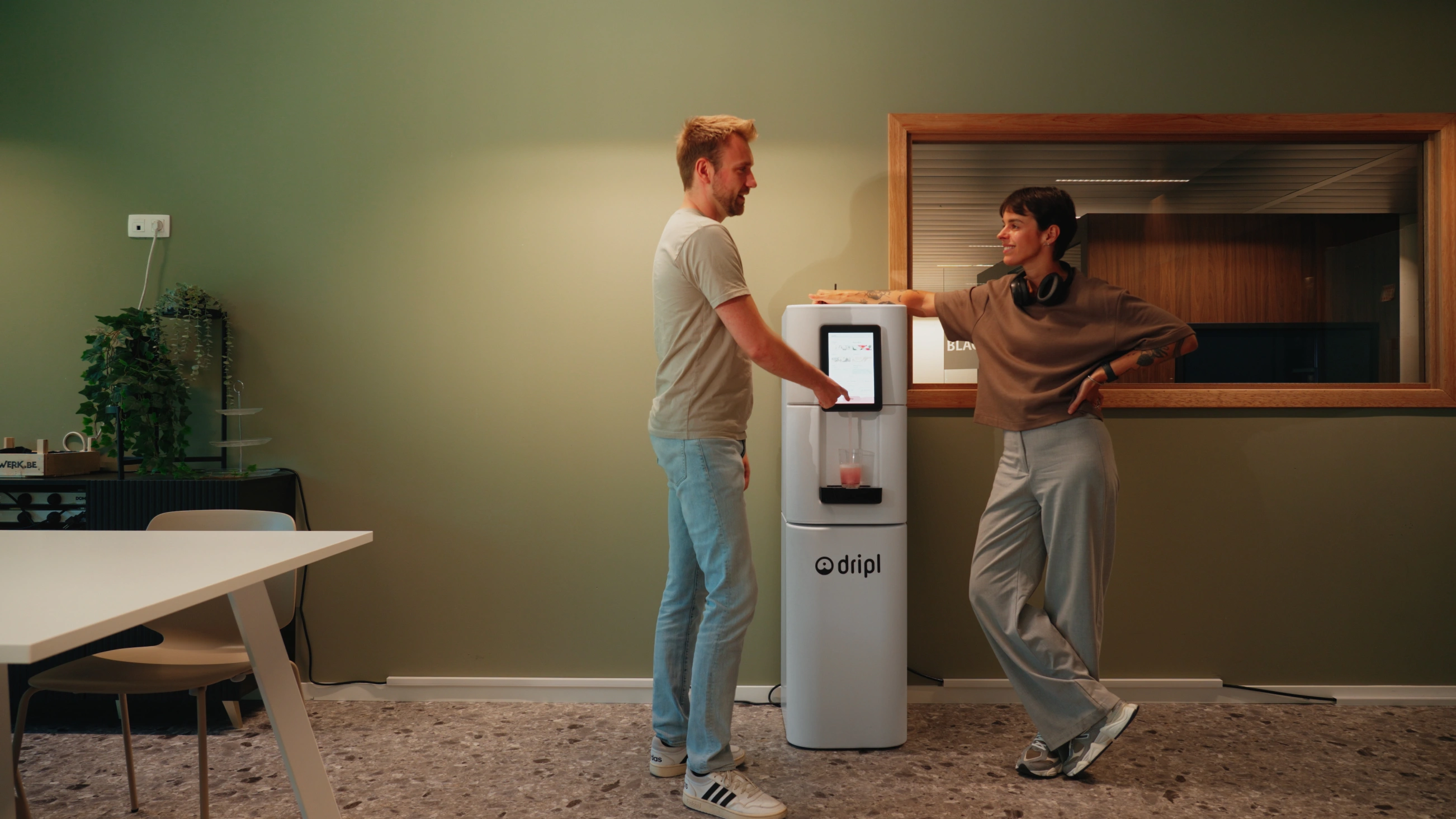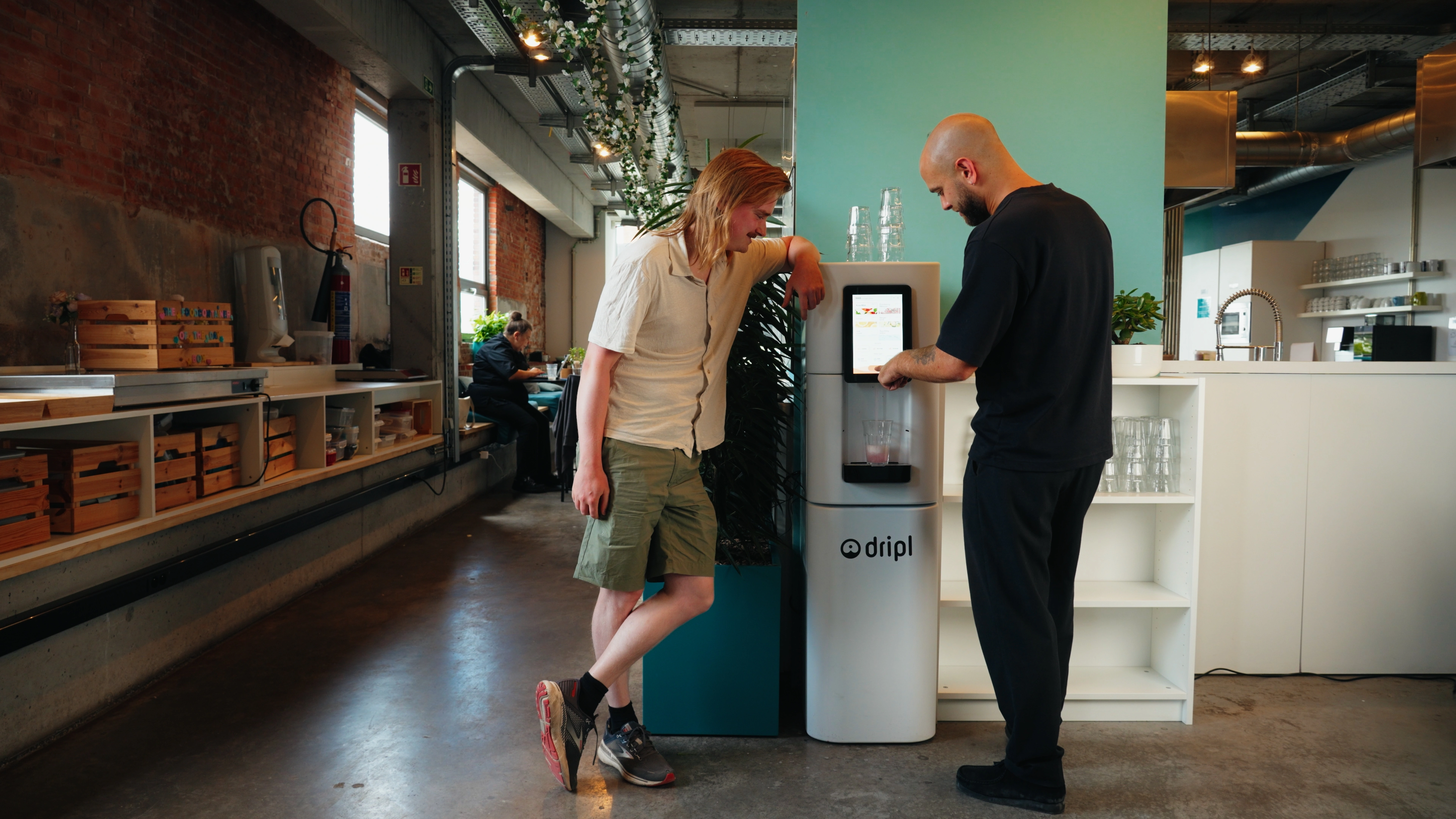All blog posts
What does deposit money mean for your office?

That plastic is polluting our nature and oceans should come as no surprise. That's why the European Union recently created the Single Use Plastics Directive, or SUP. That rule aims to reduce the use of certain disposable plastics in order to curb their impact on the environment. There are several phases to this process - some that are already currently in place such as deposit money.
Deposit money in the Netherlands is not a new concept. Actually, you have been paying a surcharge on plastic bottles since 2002. Since 2021 it also applied to plastic bottles smaller than one liter and in 2023 it was extended to cans.
What exactly is deposit money in the Netherlands?
Deposit is a system where consumers pay a small surcharge when purchasing beverages in plastic bottles or cans. You get this fee back when you return the empty container to a collection point. The purpose of extending the deposit system to cans is to improve the collection and recycling of can packaging to reduce its impact on the environment.
Exactly how the deposit system works since 2023:
- Payment of deposit: When purchasing a can of soda or other beverages, consumers pay a small additional fee on top of the retail price. This is the deposit amount.
- Returning cans: After the can is emptied, the consumer can return the empty can to a return point, such as a supermarket, special deposit point, or vending machine specifically designed to take cans.
- Deposit refund: Upon returning the empty can, the consumer receives a refund of the deposit amount. This can be in the form of cash, a voucher or a digital refund, depending on the return point.
- Processing and recycling: The cans handed in are then collected and recycled. This helps to reduce litter and promote a circular economy by recovering valuable raw materials.
More info? Check out the official explanation at statiegeldnederland.nl.
Now what are the obligations for companies in the Netherlands?
A general measure that also has a lot of impact on your office environment. To deal with it effectively, you can implement some measures as an office or facility manager.
- Collection points: Provide clearly marked collection points where employees can deposit empty bottles and cans for recycling. These can be special bins or even separate collection stations.
- Information and awareness: Communicate clearly about the deposit system and the proper ways to return empty containers. This can be done through emails, posters, intranet or staff meetings to inform and make employees aware of the importance of recycling.
- Work with waste processors: Work with waste management companies or municipal agencies to ensure efficient waste collection and disposal. This may include arranging collection services for recycling.
- Training and education: Provide training and education opportunities for employees on how to properly sort and recycle waste, including how to distinguish between returnable containers and other waste.
- Policy Adjustments: Review existing office policies to include specific guidelines regarding the handling of deposit packaging. This may include encouraging employees to use their own reusable drinkware and reducing the use of disposable containers.
- Monitoring and evaluation: Monitor the collection and recycling of deposit packaging and regularly evaluate the effectiveness of the implementation of the deposit system. If necessary, adjust policies and procedures to improve efficiency.
Recycling is good, avoiding it is even better!
Any initiative that ensures less waste ends up in nature, we cannot help but support. While recycling plays an important role in controlling plastic waste, reducing the use of plastic packaging at the source is the most effective strategy to reduce the negative impact on the environment. Even in the office. So replace your plastic-wrapped meals with other initiatives and place a Dripl Refill Point in place of your classic beverage dispenser.

That plastic is polluting our nature and oceans should come as no surprise. That's why the European Union recently created the Single Use Plastics Directive, or SUP. That rule aims to reduce the use of certain disposable plastics in order to curb their impact on the environment. There are several phases to this process - some that are already currently in place such as deposit money.
Deposit money in the Netherlands is not a new concept. Actually, you have been paying a surcharge on plastic bottles since 2002. Since 2021 it also applied to plastic bottles smaller than one liter and in 2023 it was extended to cans.
What exactly is deposit money in the Netherlands?
Deposit is a system where consumers pay a small surcharge when purchasing beverages in plastic bottles or cans. You get this fee back when you return the empty container to a collection point. The purpose of extending the deposit system to cans is to improve the collection and recycling of can packaging to reduce its impact on the environment.
Exactly how the deposit system works since 2023:
- Payment of deposit: When purchasing a can of soda or other beverages, consumers pay a small additional fee on top of the retail price. This is the deposit amount.
- Returning cans: After the can is emptied, the consumer can return the empty can to a return point, such as a supermarket, special deposit point, or vending machine specifically designed to take cans.
- Deposit refund: Upon returning the empty can, the consumer receives a refund of the deposit amount. This can be in the form of cash, a voucher or a digital refund, depending on the return point.
- Processing and recycling: The cans handed in are then collected and recycled. This helps to reduce litter and promote a circular economy by recovering valuable raw materials.
More info? Check out the official explanation at statiegeldnederland.nl.
Now what are the obligations for companies in the Netherlands?
A general measure that also has a lot of impact on your office environment. To deal with it effectively, you can implement some measures as an office or facility manager.
- Collection points: Provide clearly marked collection points where employees can deposit empty bottles and cans for recycling. These can be special bins or even separate collection stations.
- Information and awareness: Communicate clearly about the deposit system and the proper ways to return empty containers. This can be done through emails, posters, intranet or staff meetings to inform and make employees aware of the importance of recycling.
- Work with waste processors: Work with waste management companies or municipal agencies to ensure efficient waste collection and disposal. This may include arranging collection services for recycling.
- Training and education: Provide training and education opportunities for employees on how to properly sort and recycle waste, including how to distinguish between returnable containers and other waste.
- Policy Adjustments: Review existing office policies to include specific guidelines regarding the handling of deposit packaging. This may include encouraging employees to use their own reusable drinkware and reducing the use of disposable containers.
- Monitoring and evaluation: Monitor the collection and recycling of deposit packaging and regularly evaluate the effectiveness of the implementation of the deposit system. If necessary, adjust policies and procedures to improve efficiency.
Recycling is good, avoiding it is even better!
Any initiative that ensures less waste ends up in nature, we cannot help but support. While recycling plays an important role in controlling plastic waste, reducing the use of plastic packaging at the source is the most effective strategy to reduce the negative impact on the environment. Even in the office. So replace your plastic-wrapped meals with other initiatives and place a Dripl Refill Point in place of your classic beverage dispenser.
FAQs
Get your free quote
Get your personalised quote today. We’ll get back to you soon.




-min.png)